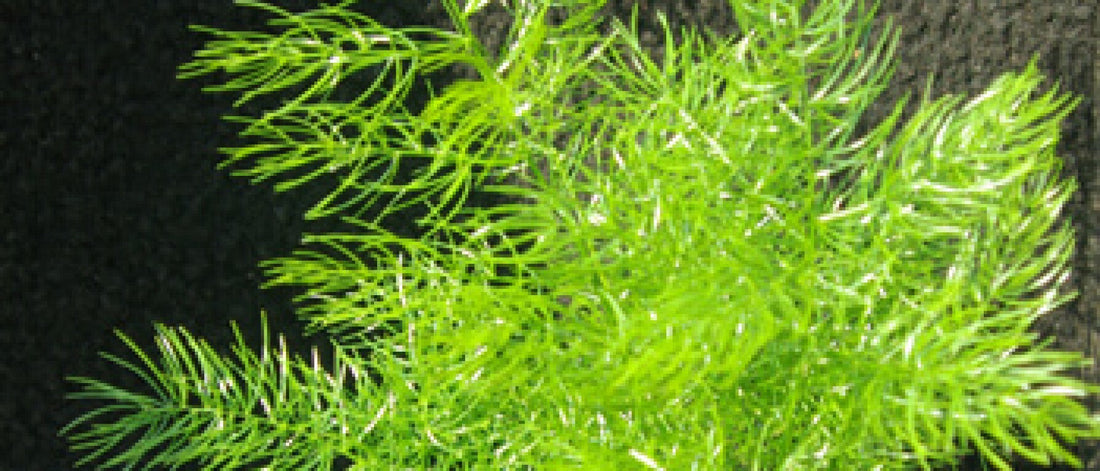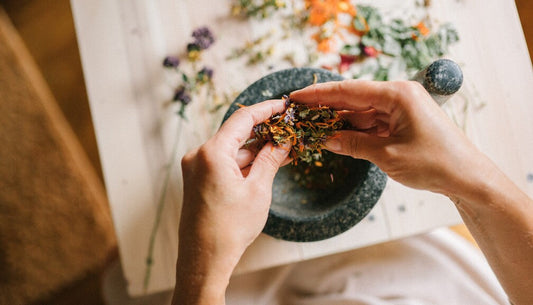In Ayurveda, health is much more than the absence of disease. It is the dynamic integration of the body, mind, spirit, and environment. Herbal medicine offers a gentle approach to enhance this integration and correct subtle imbalances. For Pittas, herbal remedies can be especially helpful for alleviating inflammation and promoting detoxification. They can also help improve digestion, elimination, and sleep
Keep in mind that Ayurveda does not support herbal allopathy, in which you take an herb to relieve symptoms without looking for the cause of the underlying imbalance. Herbs need to be used as part of a complete plan for mind-body balance. Instead of popping a few licorice capsules for your heartburn, you would be guided to look at your diet and lifestyle to make improvements that would make an acid-neutralizing substance unnecessary.
With this Ayurvedic perspective in mind, let’s look at a few herbs that are particularly balancing for your predominant dosha, Pitta.
One of the most powerful rejuvenating herbs in Ayurvedic medicine, shatavari is also commonly prescribed for conditions affecting the female reproductive system, including the mood swings and irritation associated with premenstrual syndrome, as well as menopausal hot flashes. Sometimes translated as “she who possesses 100 husbands,” shatavari also has a reputation as a fertility-enhancing plant that improves the health of both male and female reproductive tissues.
In India, shatavari is often prescribed to improve the production of breast milk in nursing mothers, though there has been relatively little scientific research to verify its effectiveness in this area. Researchers have paid more attention to shatavari’s immunomodulating properties. Studies show that the herb strengthens the immune system by enhancing the functioning of macrophages—the immune cells responsible for digesting potentially destructive organisms and cancer cells.
Scientists have also discovered that shatavari helps the immune system recover more quickly from exposure to toxins by protecting blood-producing cells in the bone marrow and by enhancing the production of immune-regulating messenger molecules. The recommended dose is 500 to 1,000 mg twice daily.
Bacopa is commonly prescribed for:
Amalaki (emblica officinalis), commonly known as Indian gooseberry or amla, is considered one of the best rejuvenating herbs in Ayurveda. It has traditionally been used to treat skin diseases, lung conditions, diabetes, and indigestion. Amalaki is a strong natural antioxidant containing high levels of vitamin C. In India, amalaki is known as the “nurse herb” because it strengthens the immune system and cools the body, balancing the Pitta dosha.
Haritaki (terminalia chebula) has the strongest laxative powers of the three fruits contained in triphala. In Tibet, haritaki is so highly revered that in Tibetan sacred paintings, it’s often depicted in the extended palm of the Medicine Buddha. The herb also has astringent properties and balances Vata.
Bibhitaki (terminalia bellerica) is an excellent rejuvenative with both laxative and astringent properties. It eliminates excess mucus in the body, balancing the Kapha dosha. In addition, bibhitaki is a powerful treatment for a variety of lung conditions, including bronchitis and asthma.
Triphala is a particularly useful herbal blend because it gently cleanses and detoxifies the body without irritating the colon. In addition, unlike other laxatives that deplete the body, triphala actually strengthens and nourishes the bones, nervous system, and reproductive organs.
The recommended dose is 500 to 1,000 mg twice daily
Keep in mind that Ayurveda does not support herbal allopathy, in which you take an herb to relieve symptoms without looking for the cause of the underlying imbalance. Herbs need to be used as part of a complete plan for mind-body balance. Instead of popping a few licorice capsules for your heartburn, you would be guided to look at your diet and lifestyle to make improvements that would make an acid-neutralizing substance unnecessary.
With this Ayurvedic perspective in mind, let’s look at a few herbs that are particularly balancing for your predominant dosha, Pitta.
Herbal Energetics
Composed of fire and water, the Pitta dosha is responsible for the digestion and metabolism of the energy and information we ingest from the environment. When Pitta becomes aggravated or excessive, you may experience heartburn, inflammation, skin rashes, hot flashes, and irritability. You can use soothing and cooling herbs as part of an overall Pitta-balancing lifestyle.Shatavari (asparagus racemosus)
- Tastes: sweet, bitter
- Energetics: cooling
One of the most powerful rejuvenating herbs in Ayurvedic medicine, shatavari is also commonly prescribed for conditions affecting the female reproductive system, including the mood swings and irritation associated with premenstrual syndrome, as well as menopausal hot flashes. Sometimes translated as “she who possesses 100 husbands,” shatavari also has a reputation as a fertility-enhancing plant that improves the health of both male and female reproductive tissues.
In India, shatavari is often prescribed to improve the production of breast milk in nursing mothers, though there has been relatively little scientific research to verify its effectiveness in this area. Researchers have paid more attention to shatavari’s immunomodulating properties. Studies show that the herb strengthens the immune system by enhancing the functioning of macrophages—the immune cells responsible for digesting potentially destructive organisms and cancer cells.
Scientists have also discovered that shatavari helps the immune system recover more quickly from exposure to toxins by protecting blood-producing cells in the bone marrow and by enhancing the production of immune-regulating messenger molecules. The recommended dose is 500 to 1,000 mg twice daily.
Bacopa (bacopa monnieri)
- Tastes: sweet, bitter
- Energetics: cooling
Bacopa is commonly prescribed for:
- Anxiety
- Depression
- Chronic fatigue
- Insomnia
- Stomach ulcers and disorders of the gastrointestinal tract
- Respiratory issues such as asthma and bronchitis
- Cognitive issues
Triphala
- Tastes: sweet, sour, pungent, bitter, astringent
- Energetics: neutral (heating and cooling). Amalaki is cooling, while bibhitaki and haritaki are heating.
Amalaki (emblica officinalis), commonly known as Indian gooseberry or amla, is considered one of the best rejuvenating herbs in Ayurveda. It has traditionally been used to treat skin diseases, lung conditions, diabetes, and indigestion. Amalaki is a strong natural antioxidant containing high levels of vitamin C. In India, amalaki is known as the “nurse herb” because it strengthens the immune system and cools the body, balancing the Pitta dosha.
Haritaki (terminalia chebula) has the strongest laxative powers of the three fruits contained in triphala. In Tibet, haritaki is so highly revered that in Tibetan sacred paintings, it’s often depicted in the extended palm of the Medicine Buddha. The herb also has astringent properties and balances Vata.
Bibhitaki (terminalia bellerica) is an excellent rejuvenative with both laxative and astringent properties. It eliminates excess mucus in the body, balancing the Kapha dosha. In addition, bibhitaki is a powerful treatment for a variety of lung conditions, including bronchitis and asthma.
Triphala is a particularly useful herbal blend because it gently cleanses and detoxifies the body without irritating the colon. In addition, unlike other laxatives that deplete the body, triphala actually strengthens and nourishes the bones, nervous system, and reproductive organs.
The recommended dose is 500 to 1,000 mg twice daily






















